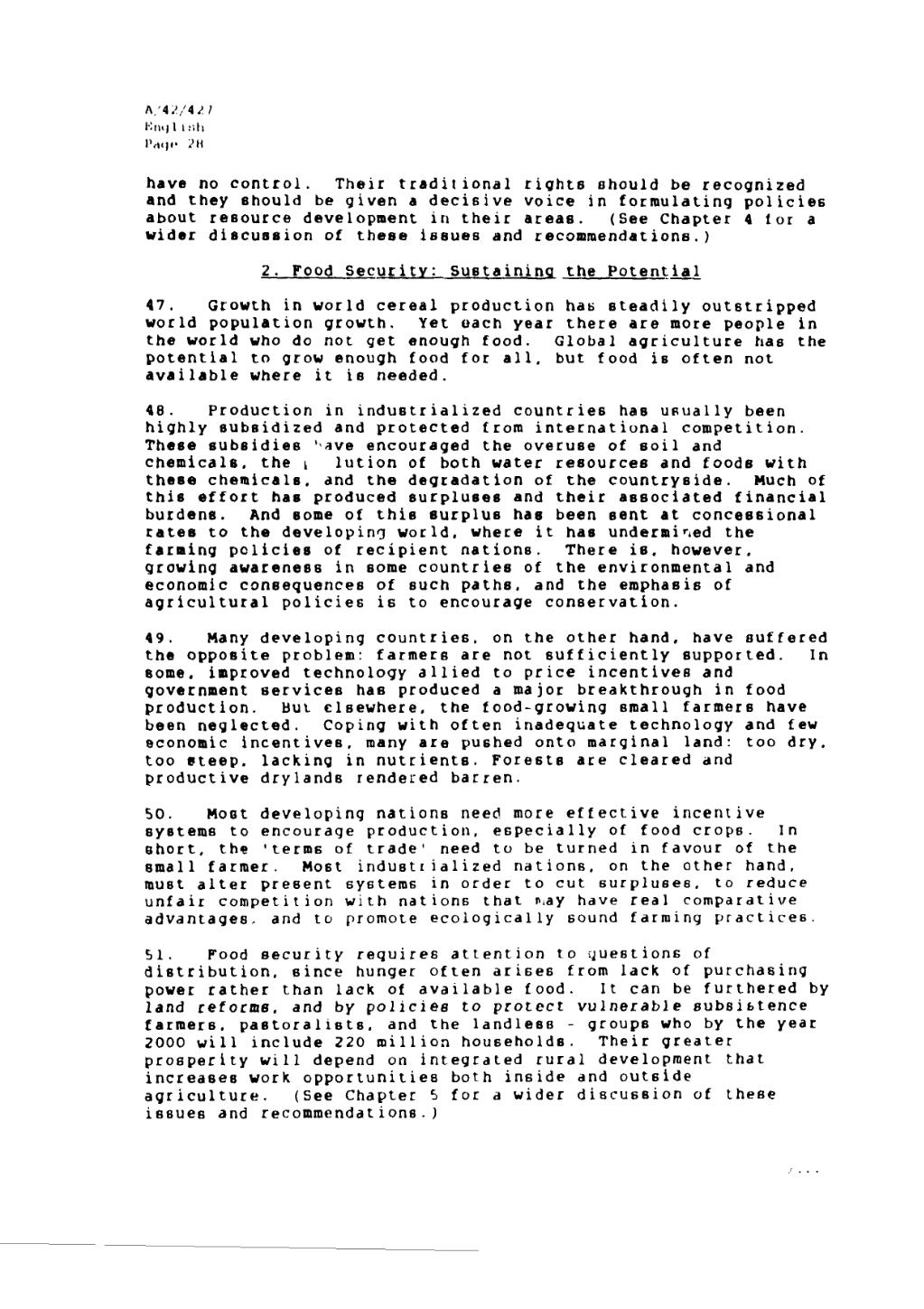A/42/427
English
Page 28
have no control. Their traditional rights should be recognized and they should be given a decisive voice in formulating policies about resource development in their areas. (See Chapter 4 for a wider discussion of these issues and recommendations.)
2. Food Security: Sustaining the Potential
47. Growth in world cereal production has steadily outstripped world population growth. Yet each year there are more people in the world who do not get enough food. Global agriculture has the potential to grow enough food for all, but food is often not available where it is needed.
48. Production in industrialized countries has usually been highly subsidized and protected from international competition. These subsidies have encouraged the overuse of soil and chemicals, the pollution of both water resources and foods with these chemicals, and the degradation of the countryside. Much of this effort has produced surpluses and their associated financial burdens. And some of this surplus has been sent at concessional rates to the developing world, where it has undermined the farming policies of recipient nations. There is. however, growing awareness in some countries of the environmental and economic consequences of such paths, and the emphasis of agricultural policies is to encourage conservation.
49. Many developing countries. on the other hand, have suffered the opposite problem: farmers are not sufficiently supported. In some, improved technology allied to price incentives and government services has produced a major breakthrough in food production. But elsewhere. the food-growing small farmers have been neglected. Coping with often inadequate technology and few economic incentives, many are pushed onto marginal land: too dry, too steep, lacking in nutrients. Forests are cleared and productive drylands rendered barren.
50. Most developing nations need more effective incentive systems to encourage production, especially of food crops. In short, the 'terms of trade' need to be turned in favour of the small farmer. Most industrialized nations, on the other hand. must alter present systems in order to cut surpluses, to reduce unfair competition with nations that may have real comparative advantages. and to promote ecologically sound farming practices.
51. Food security requires attention to questions of distribution, since hunger often arises from lack of purchasing power rather than lack of available food. It can be furthered by land reforms. and by policies to protect vulnerable subsistence farmers, pastoralists, and the landless – groups who by the year 2000 will include 220 million households. Their greater prosperity will depend on integrated rural development that increases work opportunities both inside and outside agriculture. (See Chapter 5 for a wider discussion of these issues and recommendations.)
/…
